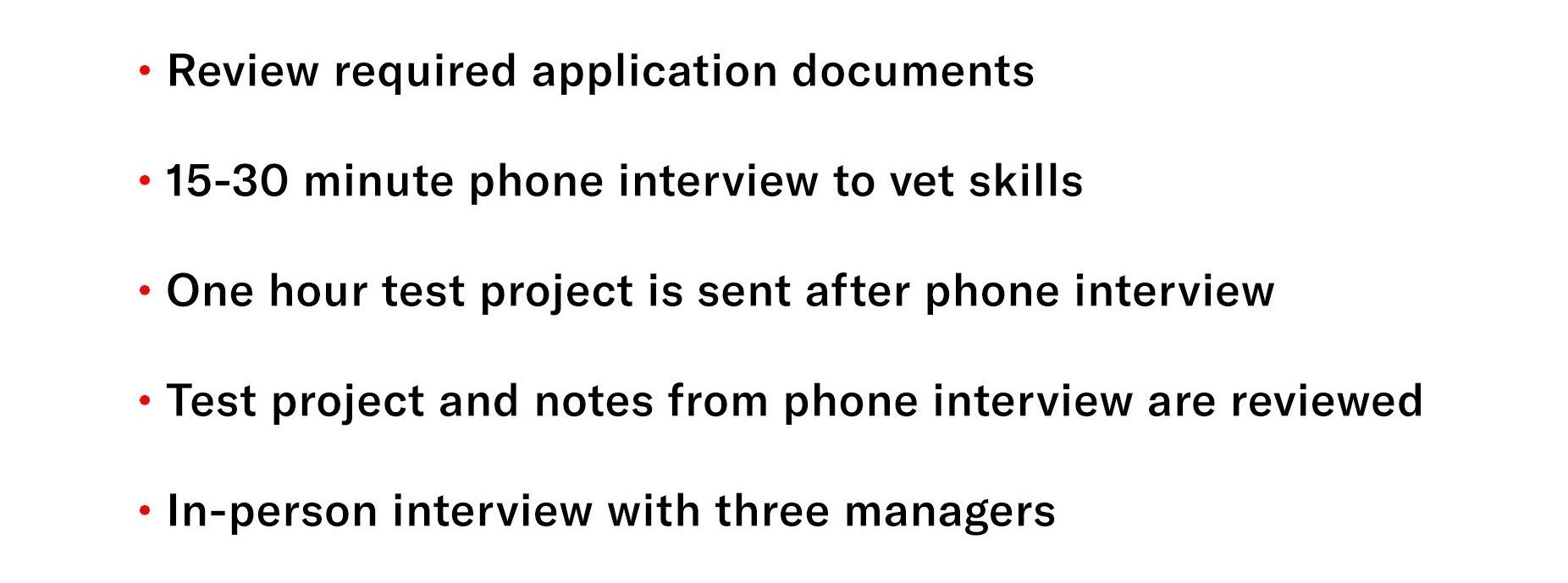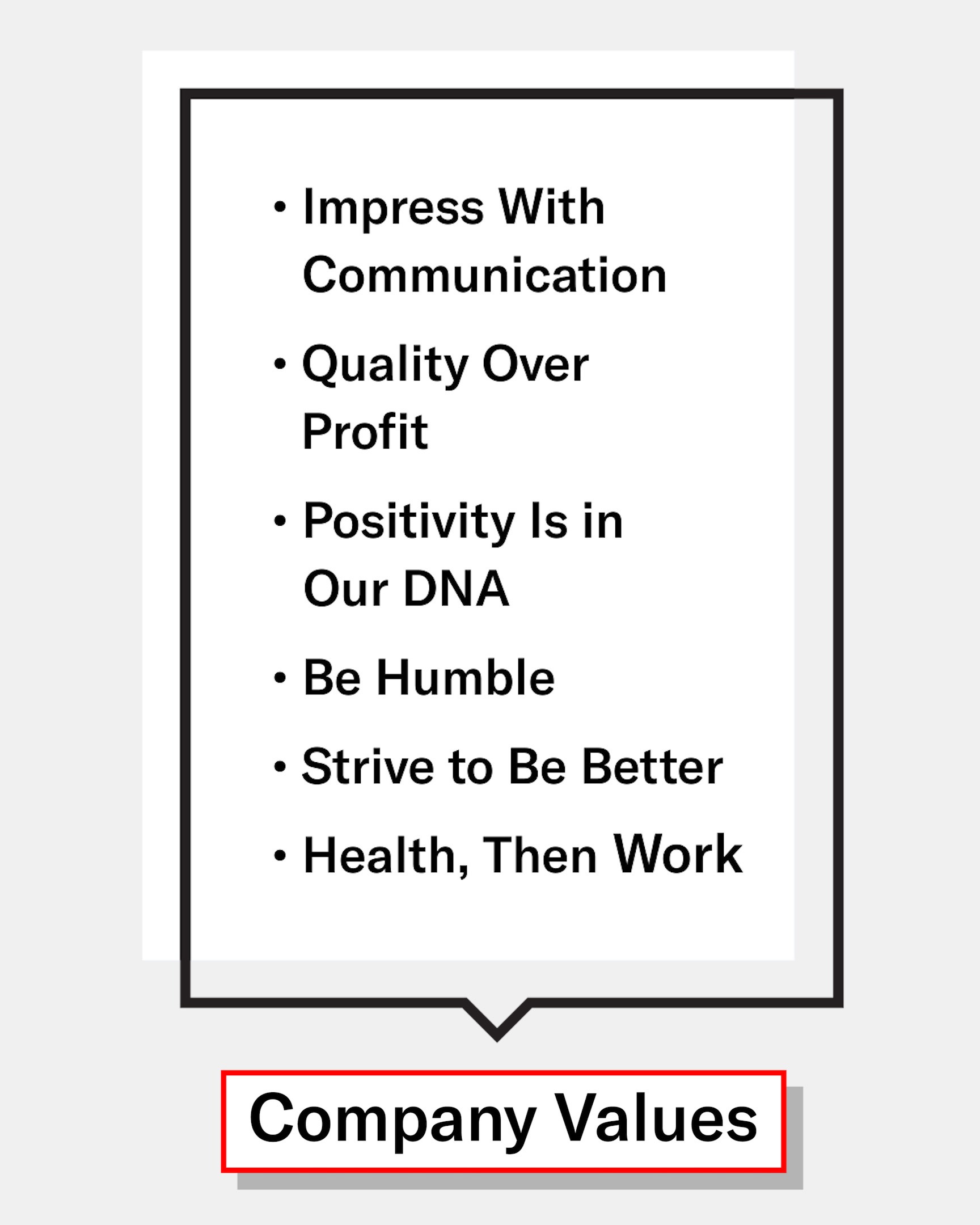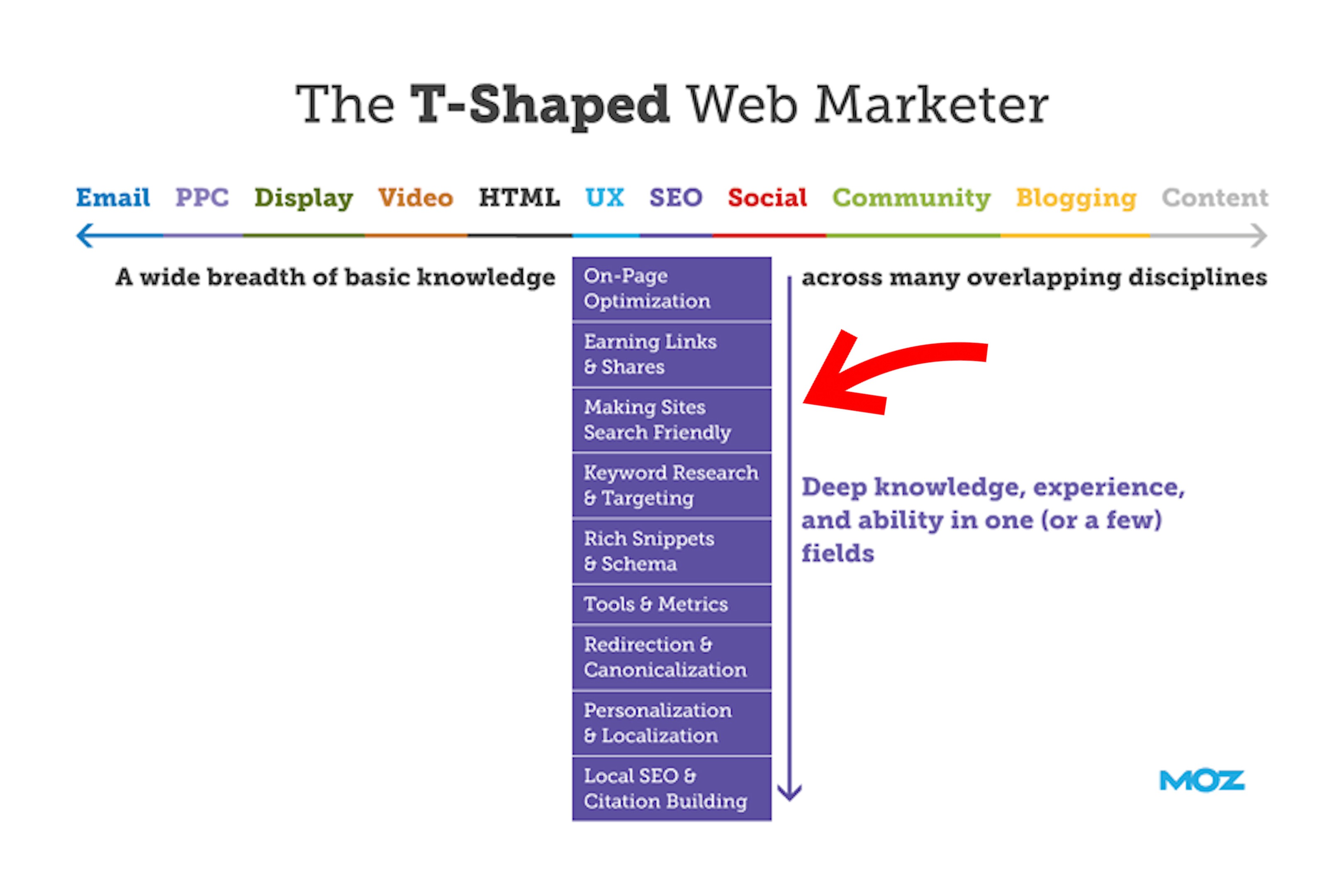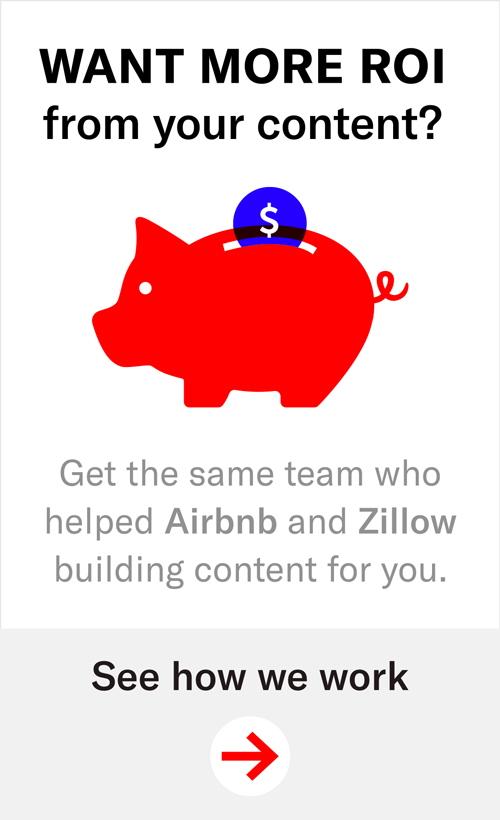As we’ve grown over the years from a small team of less than 10 people to a robust team of 75, we’ve learned a few things along the way. Our hiring process has ebbed and flowed with our growth, and now we are confident in our process to hiring the best content marketers.
Hi, everyone. It’s Caroline, Director of Content Strategy at Webcore Hub. Today, I’m going to share with you lessons we’ve learned from growing an agency of roughly 7 to 75 people in a short period of time.
As a content marketing agency, the talent and the people that we hire is really what makes us successful. There’s no quick hacks or secret sauce to our success. It’s really just the people here that want to put in great work, and we’re able to foster that talent and train in our content marketing course.
So during this process, I’m going to share with you some lessons that we’ve learned along the way. Hopefully, that’ll make your hiring and training decisions a lot easier, and maybe if you’re thinking of applying for a job at Webcore Hub, this will help you as well.
So to dive right in, I first wanted to share our overall vetting process and what that looks like at Webcore Hub. We’ve gone through a lot of revision rounds with our interview process, and we feel like we’ve kind of perfected it to date on what we look for in a candidate and also just our general steps.
Candidate Vetting Process

Our first step when we receive an application is that a hiring manager and the content director, like myself, will review the application and just vet generally resume, cover letter, anything like that for skill fit.
Once we figure out that somebody is a good fit, our hiring manager gets on the phone with them just for a quick 15 to 30-minute interview in order to gauge those skills, make sure they’re a culture fit, just high-level interview things that we check for.
Immediately following that 30-minute interview with our HR manager, we send them a 1-hour test project over email for them to complete in that allotted timeframe. So of course, we scheduled this call and subsequent test emails with the person, ensuring that they have, you know, that one-and-a-half-hour timeframe available to complete.
Once the test project is completed, they email it back to us. Our HR manager looks over it and sends it along to myself again, or a content director that’s available. We review the phone interview you’ve had with our HR manager and also the corresponding test project, resume, and all the cover letter information that you’ve provided. So we have a pretty good substantial package of a candidate at this point.
When we get to the final in-person interview stage, our rule of thumb is that we want that candidate to interview with at least three people here at Webcore Hub. So typically, who they’re interviewing with is somebody manager level or higher. Ideally, one of those three people has to be the content manager that they’re going to be working under so that you can get a sense for just team fit and culture fit, again.
And so that’s really the entire step-by-step process of what a candidate can look forward to here at Webcore Hub. It sounds like a lot of steps, but it’s actually ideally a two to three-week process max. I’m going to share with you in a few lessons how we’ve been able to condense that step-by-step process into such a quick run.
Our Ideal Content Marketer

One ideal thing that we look for in a candidate is some sort of blog or long-form writing experience. The primary content deliverable that we give for most of our clients is blog content. We are running and maintaining the blog section of our client’s website. So if you don’t have any kind of blogging experience or interest in blogging, you’re really not going to be a good fit here.
So I don’t really bother to look at anybody’s experience in social media, PPC, email marketing. Those things are nice, but if that makes up the majority of your resume, then I’m probably going to pass on you as a candidate. The second thing that we look for is some sort of communications or public relations experience.
If you’re familiar with the SEO world, you know that link building is a huge factor here, and we look at outreach as a huge component of a content marketing specialist workload. Basically, we explain to our content marketing specialist at any level, junior, content specialist or senior, that outreach and content creation are basically 50-50% of your day.
We try to look for anybody who’s had some sort of communications or PR experience. I even consider people with sales experience because they also have experience with high-volume email campaigns. So it’s not an immediate no if you don’t have PR communications in your background, but if you can prove that you’ve run high-volume email campaigns and been able to track and manage placements in some capacity, that’s going to be a valuable skill for us.
And then personality-wise, that can be difficult sometimes to vet for. People are putting forth their best face and their best personality, so it is really hard to know if somebody is going to be a good culture fit at your company. What I constantly rely on is our company core values.

I try to gauge an individual against those core values and ask specific questions that allude to me whether or not they would adopt and believe in those core values themselves. So this process, plus the vetting criteria that we look for, kind of gives us a good picture of what makes you a good hire at Webcore Hub, at least a high level.
Lesson #1: Watch out for false positives in applications
The first lesson I do want to call out as it relates to vetting is to watch out for kind of some false positives during your vetting process. A false positive may be people who have a background in a specific industry or they’re coming from a company that’s very similar to yours that may auto-communicate to you that, “Oh, this person would be a great hire,” when in fact, they aren’t.
One example of this that I’ve run into a lot is that we get a lot of journalism applicants, people who have worked for magazines or newspapers or digital publications, and I’ve often times been on the phone with those candidates and they say, “Well, I haven’t done public relations, but I’m a journalist, so I receive a lot of pitches and I know what that environment is like.I know the difference between a good pitch and a bad pitch.”
That’s very true. I don’t deny that that’s the case, but that doesn’t really translate from a skills perspective. So just because you receive all those pitches, you know what makes a good email template, you know what makes a good story, doesn’t mean you’re going to love doing that as a job.
And again, it’s not a total, you know, do not hire journalists for this role. We do have people who have worked in digital media at this company and have thrived here, but it is not, for me, an immediate yes. Another example would be a competitor company to ours. If somebody is coming to us from an agency that does very similar content marketing to what we do, that makes us very excited because it automatically tells us like, “Oh, they’ve been vetted, they do good work already.”
They understand the work we do, which can be very hard for new hires and candidates to really understand the type of content marketing we have here. So we’ll get really excited when we get on the phone with them or bring them in for an in-person.
And again, it’s not a hard and fast yes or no, it just requires more vetting, because we’ve discovered that some people who come from competitor agencies, they have other best practices or beliefs about what makes good content marketing or what makes a successful campaign. And it might be slightly different from the way we like to do things, and that’s totally okay.
Lesson #2: Make job posting unique
This lesson is sort of around the application itself. As a company, we evaluate our job posting pretty closely. I like to stress to people to personalize your job posting to not just what you’re looking for but also have it stand out amongst the crowd of just so many other job postings out there.
Two things that we like to include and require as part of our application process, and I like to kind of categorize them as low effort requirements and high effort requirements. A low effort requirement that we like to do is including kind of a fun word in your application subject line. We’ve had great success with this, and I think a lot of people who apply to us have fun with it, and they get to just do something a little bit more interesting.If you’re applying for jobs and you’re bored and kind of spent and creatively just not feeling challenged anymore, that kind of low effort of just “Include the word bacon in your application subject line” gets them really excited to work at Webcore Hub. And then it’s an immediate vet for us, because we get thousands of applications every week, if not hundreds every day.
If we don’t see the word bacon in your subject line, we’re automatically deleting your email. So it’s a great way to just, on our end, keep applications clean, keep inboxes clean and organized. Because clearly, if they don’t do the fun word in the subject line, they didn’t follow directions and they didn’t read our application in full.
Lesson #3: Shorten up your time to hire
The third lesson, and I alluded to this in the introduction, is evaluate your hiring process and your vetting process and look for areas where you can shorten that timespan. When we started hiring and vetting applicants for Webcore Hub two or three years ago, it took us about a full month, if not longer, from first submission of an applicant’s application to hire date.
We were realizing one month is just way too long, especially for an agency environment where we’re really fast-paced. Clients are signing on pretty regularly and sometimes at last minute’s notice, so we really need to keep that hiring pipeline a lot stronger, so we looked for areas where we could condense and where we’re spending just way too much time.
For example, one area that we looked to condense was that time period between first phone interview with our hiring manager and test project. The way we used to do it was that we would have a phone interview, and if that went well, we would then schedule the test project with the applicant for them to do at a later time. But we found that most of the time if you’re on a phone interview with us, we want to see the outcomes of the test project too, so we just made a requirement and immediately after the phone interview you’re going to have to complete this test project.
We basically required that they block off an hour and a half of their time to complete those two tasks. And getting that test project and phone interview done in the same day just sped up our process so quickly.
Another thing that we looked to revise was our in-person process all the way at the end. We have candidates sit down and interview with three people, and we try to do our best to get them in front of three people all at once so you just schedule out again another 1.5-2 hour block. They come to our office and sit down down and have that interview in one sitting.
We’re getting a little bit more flexible and okay with splitting those up into maybe a one-hour block with two managers on a Monday and then a 30-minute interview on Zoom on the following Wednesday with the final manager, or something like that.
We don’t want to invite the candidate to our office more than once — that just puts a burden on them — so we are becoming more flexible with working with manager schedules and also utilizing Zoom or video conference to facilitate that final interview if needed.
Be flexible with your process and look for areas where you can condense that time. Again we’ve gotten our process from first application to hire date down to two to three weeks which is pretty fast in my opinion.
Lesson #4: Look for specialists vs. generalists
My next lesson, this goes out to all the people also who apply to Webcore Hub and is something that I run into constantly, and is an issue with why I will auto-disqualify people. Look for specialists versus generalists with your applicants. This is kind of a shout out to Kevin Indig, he wrote an excellent blog post that was geared towards becoming a specialist in some area of marketing and SEO versus generally trying to learn all these disciplines.
I really applaud that because it’s something I completely agree with. It’s something I’ve focused on for my own personal career growth, and something that I really find to be an issue with applicants that apply to Webcore Hub, especially if they apply at that senior level or above. Really what you should be doing, a lot of people call it that T-shape level marketer where the vertical line of the T is where you should focus the majority of your experience in.

For us at Webcore Hub, we are a content marketing agency focused on SEO. If you are working in other marketing disciplines like social media or PPC, we don’t do any of that here and that’s not a client deliverable currently. If you’re highlighting in your cover letter all this experience, you’re saying that you’re really great at analytics, you’re really great at WordPress, you’re great at HTML, etc., etc., I’m gonna tune out really quick, because none of those things are really a requirement for this role.
You’re selling yourself as too much of a generalist, and you know what they say about Jack-of-all-trades, I’ve seen that phrase written in cover letters to me, and there’s a flip side to that, and that is you’re the master of none of them. So it’s really hard for me to gauge what you’re passionate about and what you really love doing.
I’ve seen people even make this mistake on the content level of their applications, so they’ll list out to me, “I’ve written e-books and blog content and white papers and videos and…” they’ll just give a laundry list of all the types of content they’ve written. I’ve written all those types of content too, but I would say, me personally, I’m only really well versed in maybe two content formats. I can do the other ones, but the content formats that I really love doing and I want to do more of is a much smaller list.
So for hiring managers and also for applicants, sell yourself as a specialist. Sell yourself as somebody who is really passionate about a select few things. And hiring managers look out for that too, unless you are really hiring for a generalist. Let’s say you’re a really small business and you need somebody who’s good at a lot of different things because you can’t staff multiple departments. That’s a totally different story.
I hope these lessons were really helpful. That covers basically what we’ve learned over the years with hiring content marketers. Hope you’ll be able to take it and be able to inform your future hiring and be able to hire great candidates. And if you’re interested in applying at Webcore Hub, check out our careers page, we’re always looking for great talent, so feel free to reach out. Thanks so much.


